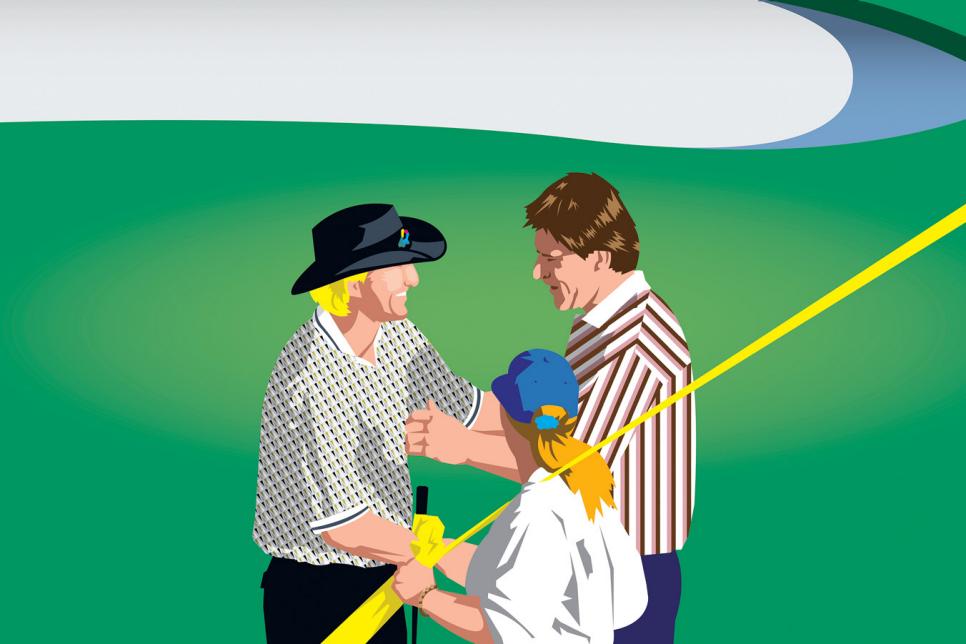Local Knowledge
Greg Norman's 1996 Masters collapse is old news, yet its impact is still huge

Twenty-seven years ago, on Masters Sunday, Greg Norman led Nick Faldo by six shots heading into their final rounds. If you were around to see what happened next, you don't need to be reminded of who won that day; Norman's painful 78 is unforgettable. Even if you weren't around, that Masters has become such a part of golf lore that you've probably seen clips, or maybe watched the ESPN 30-for-30 documentary, or heard stories from that day. Norman came to be defined as a player by his major losses, with '96 as the main event. It's easy to forget that he captured two Open championships, spent more than 300 weeks as the world's no. 1 golfer, and had more than 80 worldwide victories. The loss to Faldo even overshadows his current role as the CEO of LIV Golf—at least this week.
On this week's episode of Local Knowledge, we take a deep dive back in time to see what's been left unexplored about that fateful day. How did it happen? Could Norman have done anything to prevent it? Can current golfers learn from his mistakes? And above all, what is it that makes his loss so riveting today? If it's truly like a slow-motion car wreck, why do we want to keep watching?
With time, more details have emerged, from the seemingly obvious—Norman admitting that Faldo was a terrible playing partner for him that day, considering Faldo's ferocity, unfriendliness in the heat of battle, and proven ability to chase from behind at majors—to the more surprising, like Norman's back troubles, his mysterious "personal issue" on Sunday morning, and the fact that he was so enraged by something Peter Kostis said on TV that he actually phoned a CBS producer before his round began to complain. In many ways, it was a psychological tour de force of things you shouldn't do on the verge of trying to capture your elusive first Masters, and what happened on the course was fait accompli after his rocky preparations.
Before that night, Norman had held six 54-hole leads, but had only converted one of them before. His seventh attempt was golf's equivalent of a waking nightmare, and the broader fascination around his loss remains as strong today as ever. You can listen to the episode at the link below, or wherever you get your podcasts, and don't forget to subscribe to Local Knowledge.